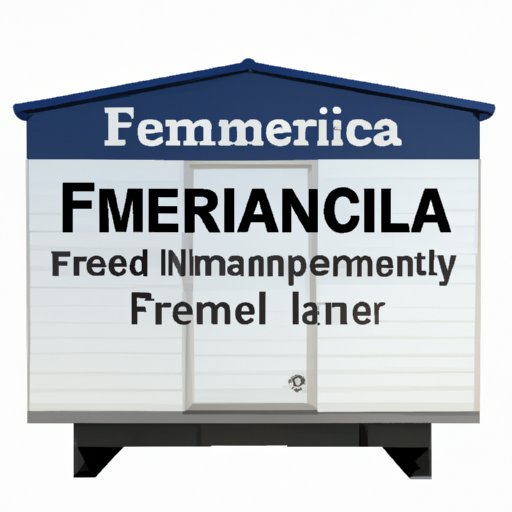
Introduction
Natural disasters can devastate entire communities and leave many individuals in need of temporary housing. Getting a FEMA trailer can help those affected, but the process of obtaining one can be complicated and overwhelming. This article aims to provide a clear, step-by-step guide for anyone who qualifies for a free FEMA trailer.
Eligibility Requirements
Prior to applying for a FEMA trailer, it is crucial to understand the eligibility requirements. Factors that affect eligibility include:
- Lost or damaged primary residence due to a natural disaster.
- Uninsured or underinsured for any dwelling-related insurance.
- Registered with FEMA for disaster assistance.
- Your local officials must request FEMA trailers.
These general requirements can vary by state, so it is essential to check your specific state’s protocols. It is also necessary to have proof of identification, such as a driver’s license or passport.
Application Process
To apply for a FEMA trailer, individuals must contact FEMA representatives within their state. The application process includes the following steps:
- Call FEMA, or visit a Disaster Recovery Center to speak with a representative.
- Complete the form on the FEMA website or by phone. Required information includes registration number, social security number, and the reason why the trailer is necessary.
- Wait for a FEMA representative to contact you after submitting your application for further instructions.
Individuals who apply for a FEMA trailer can stay in accommodation while waiting for their trailer to arrive. Filling the forms can take some time, typically weeks to months, so it is essential to prepare accordingly.
Preparing for Your Trailer
Before the trailer arrives, it is crucial to prepare a suitable site. Preparation includes finding a location that meets the following requirements:
- Accessible for delivery vehicles.
- Long-lasting and stable enough for the trailer to be parked without damage.
- Close to necessary resources such as water, electricity, and waste facilities.
- Compliance with local zoning and housing regulations.
Most importantly, individuals must contact their local authorities for permits to prevent future complications. Leveling the ground is another crucial step as a level base ensures the stability of the trailer.
Living in Your Trailer
After setting up the trailer, it is essential to adapt to living in a small space. Firstly, organizing the small space can improve living conditions and provide mental stability. Individuals can use storage furniture, hanging organizers, and minimalistic décor to ensure maxim minimal utilization of space.
Maintaining the trailer is also essential. FEMA provides safety recommendations that can help individuals avoid fires and accidents. Building a safe and secure environment is crucial to have a peaceful and healthy life while living in a FEMA trailer. Finally, it’s vital to reach out to your community and connect with those around you.
Conclusion
Getting a FEMA trailer can be a helpful solution for individuals who have lost their homes due to natural disasters. However, it is crucial to understand the eligibility requirements and the application process to obtain one. Preparing for the trailer’s arrival, such as finding a suitable location and leveling the ground, is essential. Living in a small space can be challenging, but adapting to it can make the experience more manageable. Finally, reaching out to FEMA representatives and your community can provide additional support. Overall, getting a FEMA trailer for temporary housing can provide stability and safety during times of crisis.




